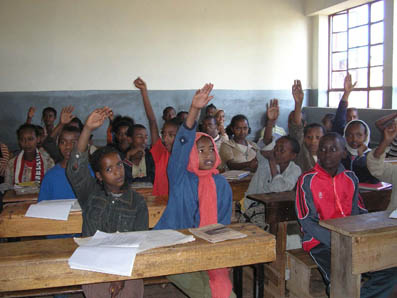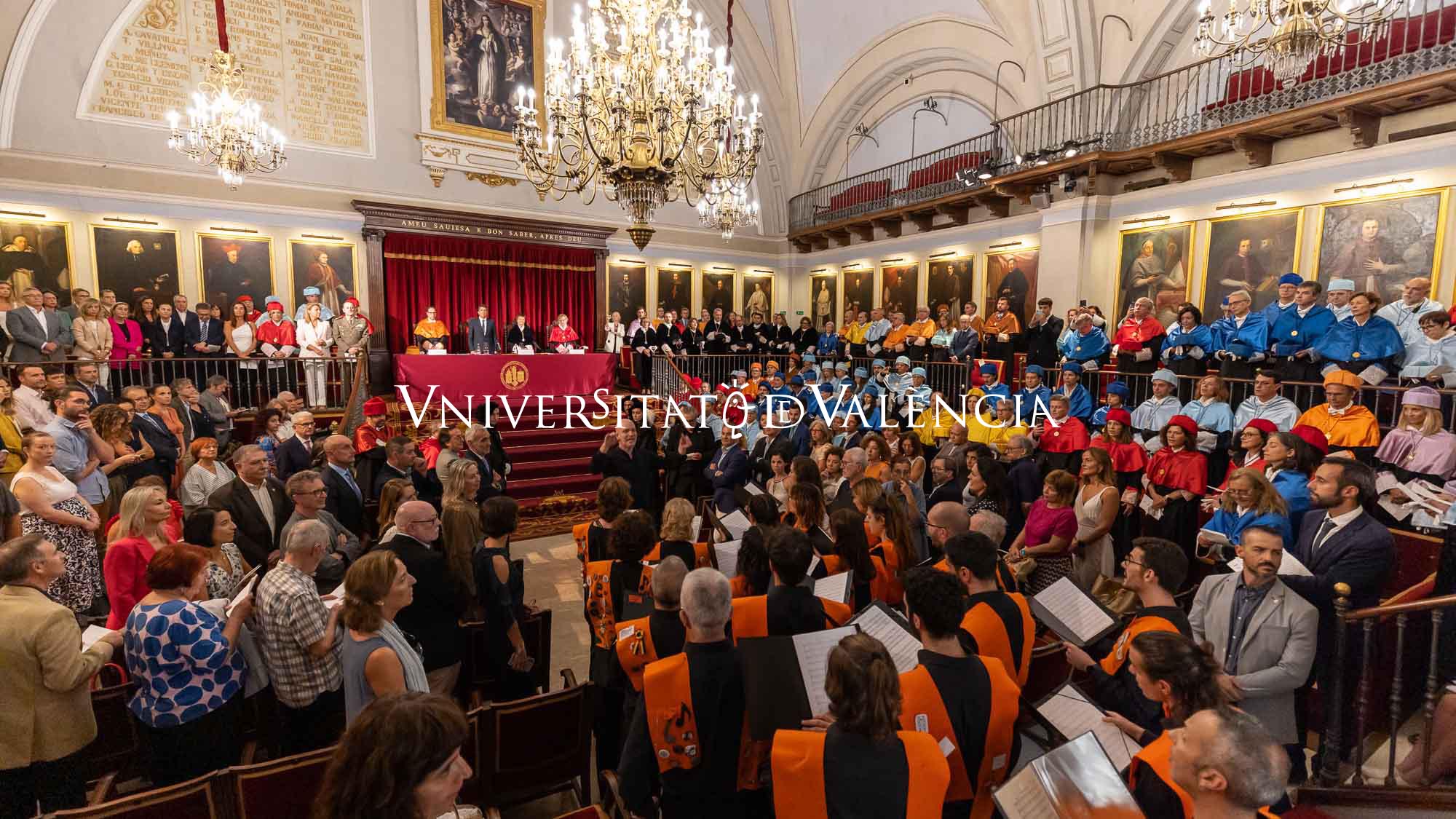
The 20 November, the UN celebrate the Universal Children's Day, a day to commemorate the adoption of the Declaration of the Rights of the Child, in 1959, and the Convention on the Rights of the Child, in 1989. The defence of these rights is one of the main cooperation aims of the Universitat de València that has developed in Soddo (Wolaitta), Ethiopia, a project, through the “Programa 0.7 Una Nau de Solidaritat” for the restoration and more resources endowment to the Ligaba Beyene School which, nowadays, hosts more than 4,000 children.
The execution of this project, that started in 2007 thanks to the initiative of María Luz Cardona and Belén Abarca, two lecturers of the Universitat de València and both full university professors of Organic Chemistry, has improved the conditions of education in this area (the administrative region of Southern Nations), the pupils’ level of achievement and the collaboration of the local community in the restoration works and the production of new furniture.
Besides, this school possesses an added value. “It pays attention to disability people, blindness and deafness children or with intellectual disability... Therefore, we think that with the restoration of the centre, which hadn’t got any maintenance since its opening, more than fifty years ago, it could also improve the conditions of all these students” Belén Abarca explains.
“The restoration of this school, which since its construction in 1953 had been a model in the area, started with the building of a wall that surround it to set up the limits of its property formed by the main building, the additional pavilions and the large unbuilt plot”, María Luz Cardona says. This work is the result of the request of that academic centre with the aim of avoiding, on the one hand, the possible thefts as consequence of the extreme poverty and the high grade of unemployment in that area; and on the other hand, the construction of buildings inside of the school plot, that was decreasing its space. At this point, the wall is used as an educative space with paintings such as Amharic and English alphabet, the periodic table of chemistry elements, the basic structure of a human heart, etc.; and it has allowed fitting out the sports facilities in the unbuilt area, and also organizing the access of pupils in the school.
The general project is up and running for seven years. This project, headed by the Universitat de València in collaboration with the Ligaba Beneye School and the Soddo council (Wolaitta), has achieved to improve the education conditions of 4,000 pupils between 7 and 18 years old, who are now enrolled in this centre which has 32 classes and a teaching staff of 75 teachers. Besides, the school deal with 74 pupils with special needs.
“During these years the original and main building has been restored with works in the facade, ceilings, water pipes, the assembly hall, the direction office, the teacher’s room, the administrative office, the library and six classrooms. This school also has several pavilions, with classrooms, built during different extensions along the years. Some of these pavilions are made of concrete but others, which were financed by some student’s families, are made of adobe and, therefore, they are too much vulnerable... During the development of the project, it has been done, at this moment, only the painting of some of the concrete pavilions”, the responsibles of the project tell.
The restoration works of the building and the equipment of the school have had so many consequences for example they have achieved to stimulate the student learning process and improve their academic results; improve the working environment for teachers; give to the administration staff the media needed to develop their task and create jobs. This last achievement has improved temporally the economic situation of the families of this area.
Contextualisation of the project
The general project of restoration and equipment of the main building of the Lligaba Beyene School is realized in a complex context with high level of poverty and school dropout.
According to the details of the United Nations Development Program (UNDP) Human Development Index (2013), Ethiopia is placed in the 173th position of a list of 187 countries; therefore, it is among the poorest countries in the world. Corruption, gender inequality, illnesses, hunger, the low education level are consequence of the school dropout and the saturation of classroom (there are among 50 and 60 pupils in every room), also the absence of information access; these, among other reasons, are the main obstacles for its development.
Its economy is based essentially in the agriculture. This dependence can mean the ruin of the families because of the large drought periods. At the same time, a lot of Ethiopian homes haven’t got access to potable water. With these conditions we have to add the illnesses, such as AIDS, the high growing up of the population (one of the highest in the African continent) or illiteracy, which predominate all around the country.
The low educative level and its continued degradation are reflected in the scholar fees: while primary school represents the 87.4% of the schooling, this figure decreases to the 15% in secondary school and to 5.5% in superior studies.
Therefore, the execution of international cooperation projects is important owing to the socioeconomic setting of the country. These kinds of projects are included in the Programa 0.7 Una Nau de Solidaritat of the Universitat de València, through the Office of the Vice-Principal for International Relations and Cooperation.
This programme is organized by the Comisión 0.7, created in 1995 with the aim to set the general points to work in the area of cooperation for development of the Universitat de València; distribute the budget 0’7 - got from the 0’7% of the Universitat de València budget, as the volunteer 0’7% of the staff salaries and registration fees of students - among the different cooperation programmes; control and supervise this budget; and prepare and solve the calls of its own cooperation projects.
Last update: 19 de november de 2014 09:30.
News release


















